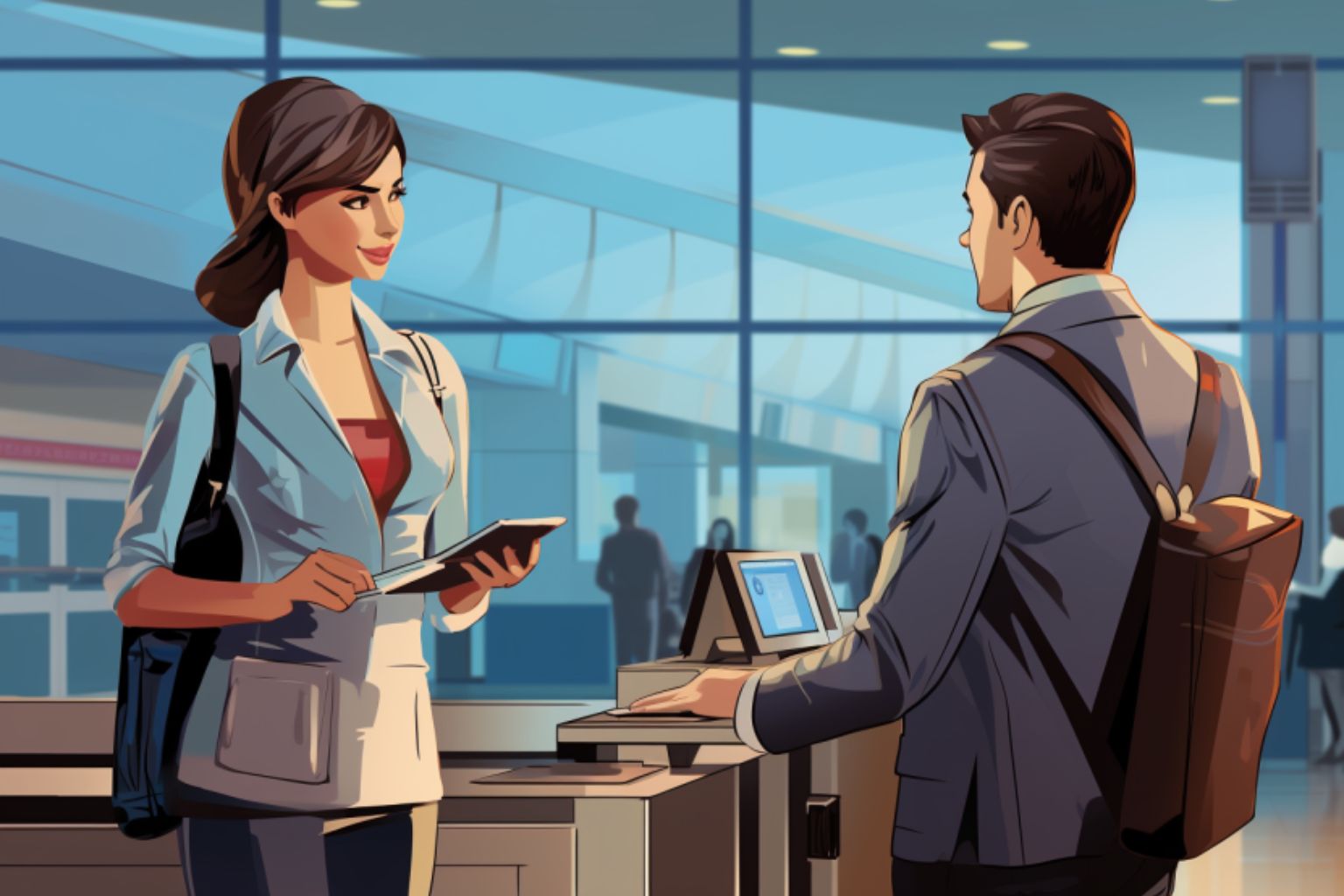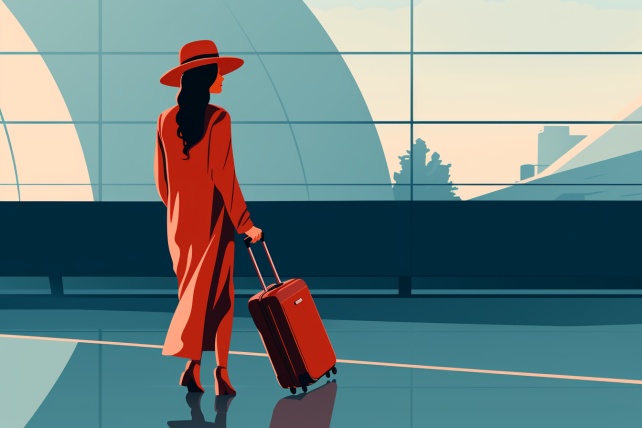Tom Posch missed a weekend trip to Cleveland last summer after United Airlines overbooked his flight. Normally, travelers in Posch’s shoes would quietly accept the flight vouchers the airline offered as compensation.
But Posch is an Air Force attorney, and he decided to dig into federal regulations to see what the law requires of United.
What he found led him to file a lawsuit in a Virginia district court last month and it reveals that passenger rights are never a sure thing — even when it comes to something as seemingly certain as involuntarily denied boarding compensation.
Disputing denied boarding
On Aug. 10, Posch says that airline staff told him, his 8-year-old daughter, and his 7-year-old son that they couldn’t travel from Reagan National Airport to Cleveland because their flight was overbooked. Since the next available flight didn’t leave for another day, Posch canceled the trip. The online travel agency he’d used refunded his ticket, and after he complained in writing, the airline offered him three flight vouchers worth $300 each.
Posch believes that federal regulations require United to pay more. United says he’s misreading the rule: The involuntary denied boarding rules include an exemption for aircraft with fewer than 60 seats, and since his flight was on a 50-seat regional jet, the airline didn’t have to give him anything. (Related: Airline passengers are cutting in line when they board. It’s time to stop!)
But Posch argues that the 60-seat standard applies only when extra passengers would interfere with the aircraft’s safety, and specifically if the combined weight of him and his children had unbalanced the aircraft or kept it from operating safely.
Compensation disparities among major airlines
Fortunately, involuntary denied boardings — or being “bumped” from a flight — are relatively rare. Airlines record each incident and must share it with the Transportation Department. The DOT then publicly reports the number. Here’s my complete guide on denied boarding compensation.
Among the major carriers, United had the most involuntary denied boardings from July to September, the last months for which figures are available. It bumped 4,014 passengers, for 1.9 bumpings per 10,000 passengers. By contrast, JetBlue, with the fewest denied boardings, showed just 10 passengers the door.
Denied boardings come with the territory when you’re flying on a legacy airline. But the least you can expect is that the government will protect you when you’re bumped. In 2011, after briefly considering the idea of banning overbooking, the DOT raised the airline penalties for denied boardings, instituting a sliding scale for compensation based on the length of delay and the cost of the ticket. Before then, a passenger like Posch would have received up to $800 for being turned away from his flight. (Related: Why did Spirit deny me boarding?)
United Airlines faces criticism over oversold flight
The circumstances of Posch’s trip were frustrating, if nothing else. He and his kids arrived at Reagan National more than an hour before their scheduled departure. Their boarding passes had a notice asking whether they’d consider volunteering for the next flight because the flight had been oversold. Posch wasn’t interested, and as the departure time drew near, he says no one else volunteered for the next flight either.
Complicating matters, several United crew members were standing near the jetway, and a gate agent was referring to them as “must-flys” — meaning that, if necessary, they would bump paying passengers to accommodate them.
The agents began by offering a $400 voucher to passengers who would give up their seats. Only one couple accepted. The gate agents raised the value of the vouchers several times, delaying the flight by an hour, but there were no takers. In the end, Posch and his family were denied boarding to make room for the “must-flys” and other passengers, he says.
Unraveling the regulations
Few air travelers know that rules govern oversales. It isn’t uncommon to see passengers simply walk away when airlines bump them without asking for any compensation. Not to get too technical, but finding the rule is fairly easy. A quick search for the latest version of the Code of Federal Regulations under “involuntary denied boarding” reveals chapter and verse ( 14 CFR § 250.8 ).
The rule as written could allow two interpretations. The bumping law completely exempts all planes with fewer than 60 seats. Or these smaller jets are only not bound by the regulation if the number of passengers affects the aircraft’s safe operation. The DOT says that the law is unambiguous and as written completely exempts only planes with 30 or fewer seats. Put differently, an airline can’t count on the 60-seat rule to get out of the denied-boardings rule.
Still, it’s possible for an airline to cite the 60-seat regulation. Unless it’s dealing with a passenger like Posch, or unless a passenger files a complaint with the DOT, it could save a few hundred dollars. That may be one of the reasons regional carriers such as Skywest Airlines, ExpressJet Airlines and Mesa Airlines scored even worse than United in the DOT report. Those airlines racked up a rate of 2.3, 2.45 and 2.5 bumpings per 10,000 passengers, respectively. Maybe part of the reason they bumped so many is that they could.
The fix? Currently, the law requires airlines to give bumped passengers a written synopsis. But why not offer the entire rule — not just a summary — before turning people away?
DOT intervention and resolution
I shared the correspondence between Posch and United with the DOT. Bill Mosley, a department spokesman, said it appeared that the Posches were eligible for compensation. He told me that if that’s the case, each of them would be entitled to a check for 400 percent of their one-way fare from Washington to Cleveland, with a maximum of $1,300 per person.
I also forwarded the Posch file to United and asked it to review its response to him. It re-examined his case and lawsuit. “After reviewing Mr. Posch’s circumstances, we determined that he was, in fact, entitled to compensation,” United spokesman Charles Hobart said. “We are honoring his claim.”
Posch is happy with that , and so am I. But I wonder how many times airlines have turned down other passengers like this? And in the coming winter travel season, how many more will be?




